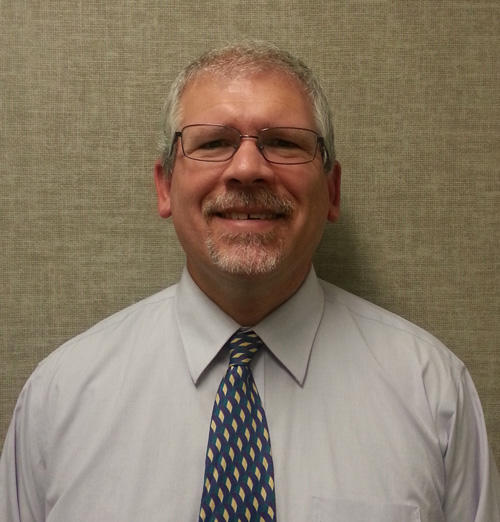Thomas Ferrari, PhD

Biography
Prior to joining RUSM, Dr. Thomas M. Ferrari was an Assistant Professor of Biomedical Sciences at Oakland University William Beaumont School of Medicine. He received his Ph.D. in Neurobiology from the University of Texas at Austin in 1993, followed by postdoctoral research at the University of California San Diego and The Scripps Research Institute in La Jolla. He was on the faculty at the University of Arkansas, the University of Missouri Kansas City, and the University of Michigan Medical School. While at Michigan, he helped create and was Co-Director of the M.S. in Physiology program. His contributions for that curriculum included creation and direction of a human physiology laboratory, pathophysiology, translational physiology, and personal and professional development courses. For OUWB, he taught physiology and neuroscience in the M1 and M2 years, co-directed the wellness program, directed medical student research, and offered meditation and Tai Chi sessions for faculty, staff, and students. He also developed two 7-week humanities seminars – ‘Mindful Patient Care’ and ‘Pain and Suffering’. During his biomedical research career, he garnered funding from the Muscular Dystrophy Association, the National Institutes of Health, and the National Science Foundation. His personal and professional interests include the confluence of science and spirituality, the practices of meditation and mindfulness, the natures of Self and Source, and the psychophysiology of forgiveness.
- Physiology
- Neuroscience
- Cell Biology
- PhD in Physiology/Neuroscience from the University of Texas at Austin
- Postdoctoral Training at the University of California San Diego
- Medical Education Research Certification
1987-1993 Society for Neuroscience
1995-2008 Society for Developmental Biology
1996-2009 American Society for Cell Biology
2002-2009 American Association of Anatomists
2015-2019 Michigan Physiological Society
2015-2019 Society for Psychophysiological Research
2015-present IAMSE
Willis R; Ferrari TM. The relationship between self-esteem and personality types in medical students. International Journal of Medical Education. In press.
Eaton K; Ferrari TM. Heart Rate Variability During an Internal Family Systems Approach to Self-Forgiveness. International Journal of Clinical and Experimental Physiology. 7(2), 52-57. https://doi.org/10.5530/ijcep.2020.7.2.14
Ogunyemi D; Sugiyama N; Ferrari TM. A Professional Development Workshop to Facilitate Self-Forgiveness. Journal of Graduate Medical Education. Jun 2020, Vol. 12, No. 3 pp. 335-339 PMID: 32595855
Lerchenfeldt S; Ferrari T; Nyland R; Patino G. Autonomic nervous system team-based learning module. MedEdPORTAL. 2016 Nov 29;12:10507. doi: 10.15766/mep_2374-8265.10507. PMID: 30984849
Ferrari TM; Nuzzarello A. The Importance of Self-Forgiveness Training. Academic Medicine. 08/2016; 91(8): 1038-1039. PMID: 27465086
Sadikot T, Hammond CR, Ferrari MB. Distinct roles for telethonin N-versus C-terminus in sarcomere assembly and maintenance. Developmental dynamics. 04/2010; 239(4): 1124-35. PMID: 20235223
Psychophysiology of Self-Care
